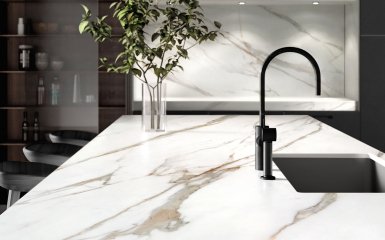Australia has announced a complete ban on using artificial stone to produce countertops for kitchens and bathrooms. This alternative to marble and granite contains crystalline silica, which causes a fatal disease.
What disease can an artificial stone cause?
Australia has had a long-term campaign to demand a ban on this artificial material.
Doctors, trade unions and workers noted that cases of silicosis had increased among people involved in cutting and transporting it. This is a progressive disease in which there is an irreversible compaction of the connective tissue of the lungs and a limitation of their functions.
The Australian Occupational Safety and Health Administration investigated the problem and noted in its report that stone masons develop silicosis at a "disproportionate" rate compared to workers in other industries. The age of most of the sick did not exceed 35 years.
According to Liam O'Brien, assistant secretary of the Australian Council of Trade Unions, the decision to ban artificial stone shows Australia has learned from asbestos, which took decades to deny.
Australia has a pretty terrible legacy with asbestos and we know all too well what happens if we don't act early. We still have a high mortality rate from mesothelioma and other asbestos-related diseases, he said.
Cases of silicosis
One of the masons who contracted silicosis is Kyle Goodwin from Queensland. In 2018, he was diagnosed with the most severe form of the disease. The man did not know that the dust that filled the air in his workshop contained crystalline silica, which caused a fatal disease.
The rest of the world can't just close their eyes and pretend they don't know these kitchen counters are killing people. It is necessary to act before it is too late, he says.
In the most extensive US study of artificial stone, silicosis has claimed the lives of several masons, mostly young Hispanics, in California.
According to Shefali Gandhi, an associate professor of medicine at the University of California, San Francisco, the study is the "tip of the iceberg" of the problem in the United States.
Our most optimistic estimate, based on data from the US and Australia, suggests that 15 to 20% of people working in this industry have silicosis or a predisposition to the disease, the scientist says.

